24/7 Cryptocurrency News
Lawyer Calls Out Mistakes In Brad Garlinghouse & Chris Larsen’s Deal
Published
2 months agoon
By
admin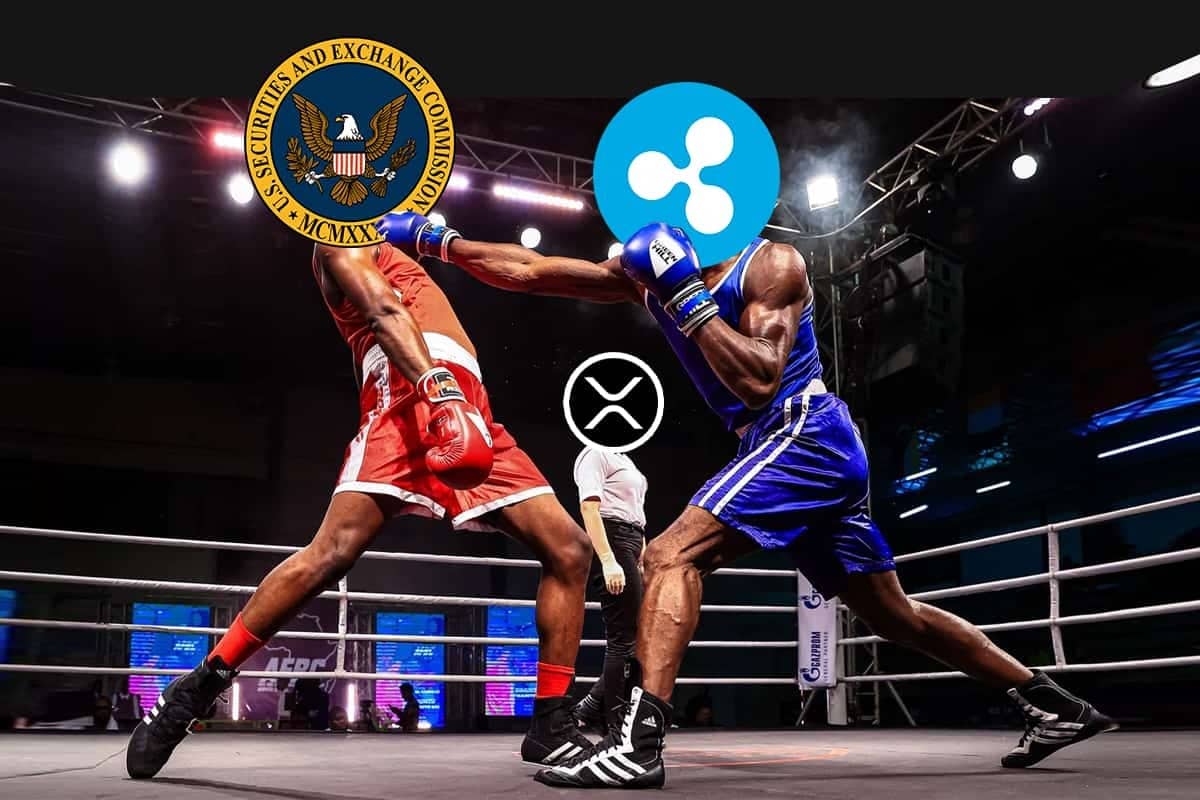
Fred Rispoli, a lawyer in the Ripple vs SEC case, has criticized Brad Garlinghouse and Chris Larsen for agreeing to drop only some of the charges that the U.S. Securities and Exchange Commission (SEC) has leveled against them. According to Rispoli, the executives should have sought for the dismissal of all the charges instead of coming to a partial settlement.
Fred Rispoli Criticizes Brad Garlinghouse and Chris Larsen’s Deal
Through a series of posts on the X platform, Fred Rispoli, a lawyer, pointed out what he called blunders in the legal approach that Garlinghouse, Ripple’s CEO, and Larsen, the company’s executive chairman, took.
He personally expressed concern with their decision to drop some of the claims while not seeking a full trial on the “aiding and abetting” charges raised by the US SEC.
In the view of Rispoli, Ripple’s leaders were in the best position to defend themselves against the SEC’s allegations, especially the “Institutional Sales” claim, which would only hold if there was evidence of recklessness. He stated that the agency lacked compelling evidence to meet that burden, and a jury would likely have been frustrated by the SEC’s case, possibly resulting in a unanimous verdict in favor of Garlinghouse and Larsen.
Missed Opportunities for Key Testimonies in Ripple vs SEC Case
Rispoli also added that had Ripple CEO Brad Garlinghouse and Larsen proceeded to trial, there was a possibility that potential witnesses would have come into the picture. He said that the SEC’s former chairman Jay Clayton and its former co-director of the corporation finance division Bill Hinman, alongside other industry players, might have been called to give evidence.
These testimonies in the Ripple Vs SEC case could have given a clue on internal SEC determinations regarding the classification of cryptocurrencies, specifically XRP.
Additionally, a trial would have allowed presenting some documents that were previously shielded from discovery. Rispoli noted that this could have been advantageous for Ripple and other digital currency companies in the future as the data disclosed could be applied in legal concerns with the US SEC.
Ripple’s Cross-Appeal and the SEC’s Latest Move
In response to the SEC’s ongoing attempts to appeal certain aspects of a 2023 judgment given by the U.S. District Judge Analisa Torres, Ripple Labs filed a cross-appeal. In her decision, Torres stated that Ripple’s sales of XRP to retail investors on digital platforms were not securities sales.
However, the regulator is now appealing other parts of the decision in the Ripple Vs SEC case, including the firm’s institutional sales, and the distribution of XRP for non-cash considerations.
Stuart Alderoty, Ripple’s legal chief, also sounded optimistic about the case stating that the agency’s appeal would not go well. “I felt good about our case in the Southern District of New York. I feel even better about our case in the Second Circuit,” Alderoty said in a recent interview.
US SEC’s Filing Deadline and Response
Some controversy had arisen regarding whether the SEC filed its brief within the time allowed for filing an appeal. Some of the X users argued that the agency failed to file its Form C within the 14 days’ period for filing the appeal in the Ripple Vs SEC case. The form itself had been submitted on October 16 while the Second Circuit’s docket reflected the filing as having been made on October 17 thus raising questions as to the validity of the filing.
🚨NEW: In response to my question about what happened with the filing deadline and for an explanation as to the date on the Form C not matching the time stamp, an SEC spokesperson told me:
“It was filed on time.”
Listening to @MetaLawMan on @AbsGMCrypto this morning, he said… https://t.co/cygihF4KQM
— Eleanor Terrett (@EleanorTerrett) October 18, 2024
When asked about the deadline of the filing, the US SEC spokesperson said, “It was filed on time.” Meanwhile, despite all this, the US SEC’s appeal doesn’t challenge the part of the decision that states that XRP sales to retail investors through exchanges are not securities. That decision is still valid, still leaving the court’s finding that XRP is not a security when sold to retail investors intact.
Kelvin Munene Murithi
Kelvin is a distinguished writer with expertise in crypto and finance, holding a Bachelor’s degree in Actuarial Science. Known for his incisive analysis and insightful content, he possesses a strong command of English and excels in conducting thorough research and delivering timely cryptocurrency market updates.
Disclaimer: The presented content may include the personal opinion of the author and is subject to market condition. Do your market research before investing in cryptocurrencies. The author or the publication does not hold any responsibility for your personal financial loss.
Source link
You may like
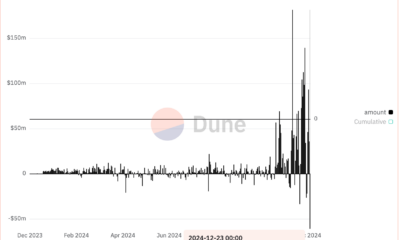

Perp-Focused HyperLiquid Experiences Record $60M in USDC Net Outflows


Experts say these 3 altcoins will rally 3,000% soon, and XRP isn’t one of them


Robert Kiyosaki Hints At Economic Depression Ahead, What It Means For BTC?


BNB Steadies Above Support: Will Bullish Momentum Return?


Metaplanet makes largest Bitcoin bet, acquires nearly 620 BTC
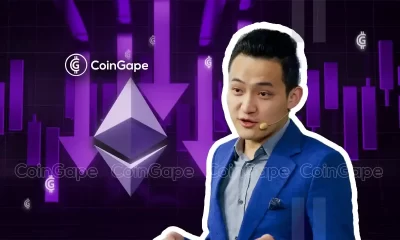

Tron’s Justin Sun Offloads 50% ETH Holdings, Ethereum Price Crash Imminent?
24/7 Cryptocurrency News
Robert Kiyosaki Hints At Economic Depression Ahead, What It Means For BTC?
Published
3 hours agoon
December 23, 2024By
admin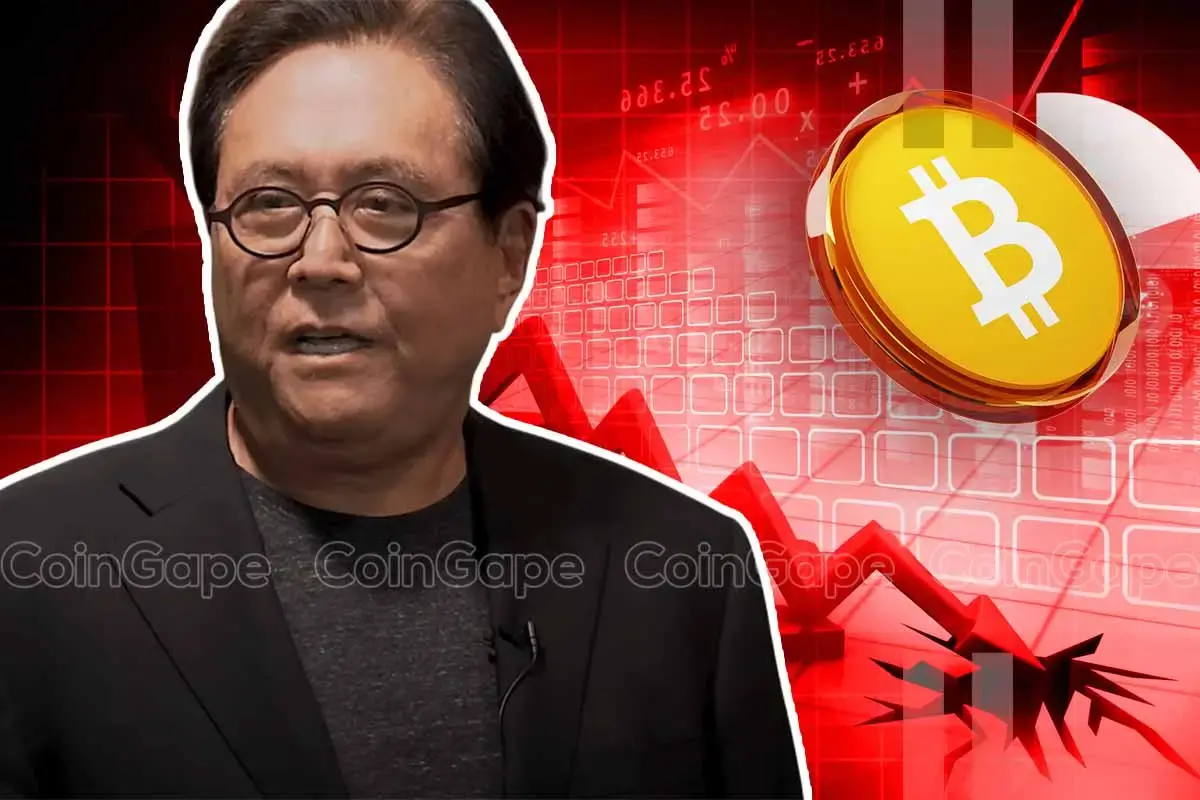
Rich Dad Poor Dad author Robert Kiyosaki has issued a stark warning while hinting towards an economic depression ahead. In a recent X post, the renowned author said that the global market crash has already started, as he predicted earlier, which indicates that the financial market might enter a “depression” phase. Notably, this comes as the crypto market records immense volatility, sparking concerns over what’s next for Bitcoin (BTC).
Robert Kiyosaki Hints At Economic Depression Ahead
Robert Kiyosaki, in a recent X post, has revealed a stark warning of a looming economic depression. The Rich Dad Poor Dad author warned that a global market crash has already begun, citing Europe, China, and the U.S. as regions facing significant downturns.
In his post, Kiyosaki urged caution, advising individuals to safeguard their finances and maintain their jobs. “Global crash has started. Europe, China, USA going down. Depression ahead?” he asked while emphasizing the enduring value of assets like gold, silver, and Bitcoin. He added, “For many people, crashes are the best times to get rich.”
This warning aligns with Kiyosaki’s earlier prediction of what he called the “biggest crash in history.” Earlier this month, he encouraged his followers to prepare for financial turmoil, stating, “Please be proactive and get rich… before the BOOMER’s go BUST.”
However, this recent comment from Robert Kiyosaki indicates his sustained confidence in BTC. As the crypto market faces heightened volatility, Bitcoin could emerge as a hedge against traditional market instability, he noted. Besides, it also indicates that the flagship crypto, alongside gold and silver, might continue to gain traction amid this economic turmoil.
What’s Next For BTC?
Bitcoin price today has continued its volatile trading, losing nearly 1.5% over the last 24 hours to $95,323. The crypto touched a high and low of $97,260 and $93,690 in the last 24 hours, showcasing the highly volatile scenario in the market.
In addition, the US Spot Bitcoin ETF also recorded significant outflow, with BlackRock Bitcoin ETF witnessing its largest outflux since its launch. This has weighed on the investors’ sentiment, sparking concerns over a waning institutional interest.
However, despite that, many experts remained confident on the asset’s future trajectory. For context, in a recent X post, Peter Brandt shared a new BTC price target, indicating his confidence in the digital asset.
On the other hand, institutions like Metaplanet have also continued to boost their BTC holdings. These moves indicates that the institutions, as well as many investors, are bullish towards the long-term potential of the crypto. Besides, as Robert Kiyosaki said, the recent dip also provides a buying opportunity to investors, which might further boost Bitcoin to its new ATH ahead.
Rupam Roy
Rupam is a seasoned professional with three years of experience in the financial market, where he has developed a reputation as a meticulous research analyst and insightful journalist. He thrives on exploring the dynamic nuances of the financial landscape. Currently serving as a sub-editor at Coingape, Rupam’s expertise extends beyond conventional boundaries. His role involves breaking stories, analyzing AI-related developments, providing real-time updates on the crypto market, and presenting insightful economic news.
Rupam’s career is characterized by a deep passion for unraveling the complexities of finance and delivering impactful stories that resonate with a diverse audience.
Disclaimer: The presented content may include the personal opinion of the author and is subject to market condition. Do your market research before investing in cryptocurrencies. The author or the publication does not hold any responsibility for your personal financial loss.
Source link
24/7 Cryptocurrency News
Tron’s Justin Sun Offloads 50% ETH Holdings, Ethereum Price Crash Imminent?
Published
6 hours agoon
December 23, 2024By
admin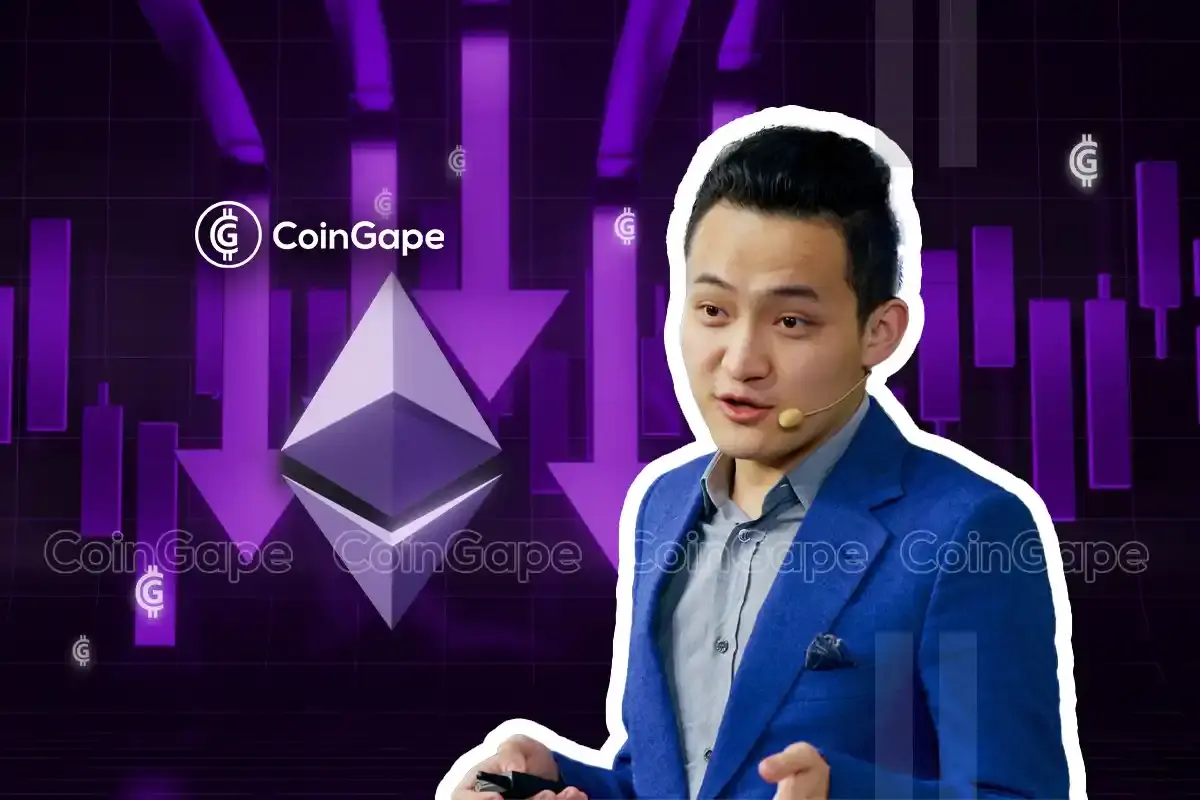
Tron founder Justin Sun has been heavily offloading his ETH holdings with Ethereum price crashing 17% following the rejection at $4,000. Over the past 7 days, Sun has offloaded another 50% of his holdings worth $143 million. Market analysts predict that ETH price could further take a dip below $3,000 once again before resuming upside momentum.
Tron’s Justin Sun on ETH Selling Spree
Justin Sun is on a massive Ethereum selling spree since the coin resumed its upward journey after Donald Trump’s election win. This continued even until last week, when Tron founder offloaded $143 million worth of ETH causing Ethereum price to tank over 15% amid the crypto market crash.
Blockchain analytics firm Spot On Chain reported that Justin Sun redeemed 39,999 ETH (valued at $143 million) from liquid staking platforms Lido Finance and EtherFi. He subsequently deposited the entire amount into HTX.
Since November 10, as Ethereum price has trended upward, Sun has deposited a total of 108,919 ETH (worth $400 million) to HTX at an average price of $3,674. Notably, many of these deposits occurred near local price peaks.


Spot On Chain also revealed that Justin Sun currently has 42,904 ETH (valued at $139 million) in the process of unstaking from Lido Finance. The Tron founder might potentially send this funds to HTX later.
Ethereum Price Drop Below $3,000 Coming?
With Ethereum price losing its crucial support of $3,500, the market sentiment for the world’s largest altcoin has turned bearish. Last week, crypto market analysts turned bearish on Ethereum expecting the ETH price to drop $2,800 on selloff by whales.
Popular market analyst IncomeSharks stated that it was a “low-volume weekend,” for Ethereum following a volatile week for stocks. The analysts added that it won’t be the right time to sell.
The On-Balance Volume (OBV) indicator, a tool used to gauge buying and selling pressure, remains steady, oscillating within a channel. Recent Ethereum buyers are still in profit, providing some support for the market. However, the below chart shows that there’s still scope for Ethereum to take a dip to $3,000.


Prominent crypto analyst “I am Crypto Wolf” also highlighted a bullish outlook with a potential inverse head-and-shoulders (iHS) pattern. According to the analyst, Ethereum price chart is currently forming the “right shoulder” of the iHS continuation pattern.


This setup could provide the momentum needed to surpass the $4,000 resistance and aim for a $10,000 target by May. A breakout is anticipated by the end of January, though a retest of the $3,000 level remains a possibility before the rally takes off, he noted.
Bhushan Akolkar
Bhushan is a FinTech enthusiast with a keen understanding of financial markets. His interest in economics and finance has led him to focus on emerging Blockchain technology and cryptocurrency markets. He is committed to continuous learning and stays motivated by sharing the knowledge he acquires. In his free time, Bhushan enjoys reading thriller fiction novels and occasionally explores his culinary skills.
Disclaimer: The presented content may include the personal opinion of the author and is subject to market condition. Do your market research before investing in cryptocurrencies. The author or the publication does not hold any responsibility for your personal financial loss.
Source link
24/7 Cryptocurrency News
CryptoQuant Hails Binance Reserve Amid High Leverage Trading
Published
12 hours agoon
December 23, 2024By
admin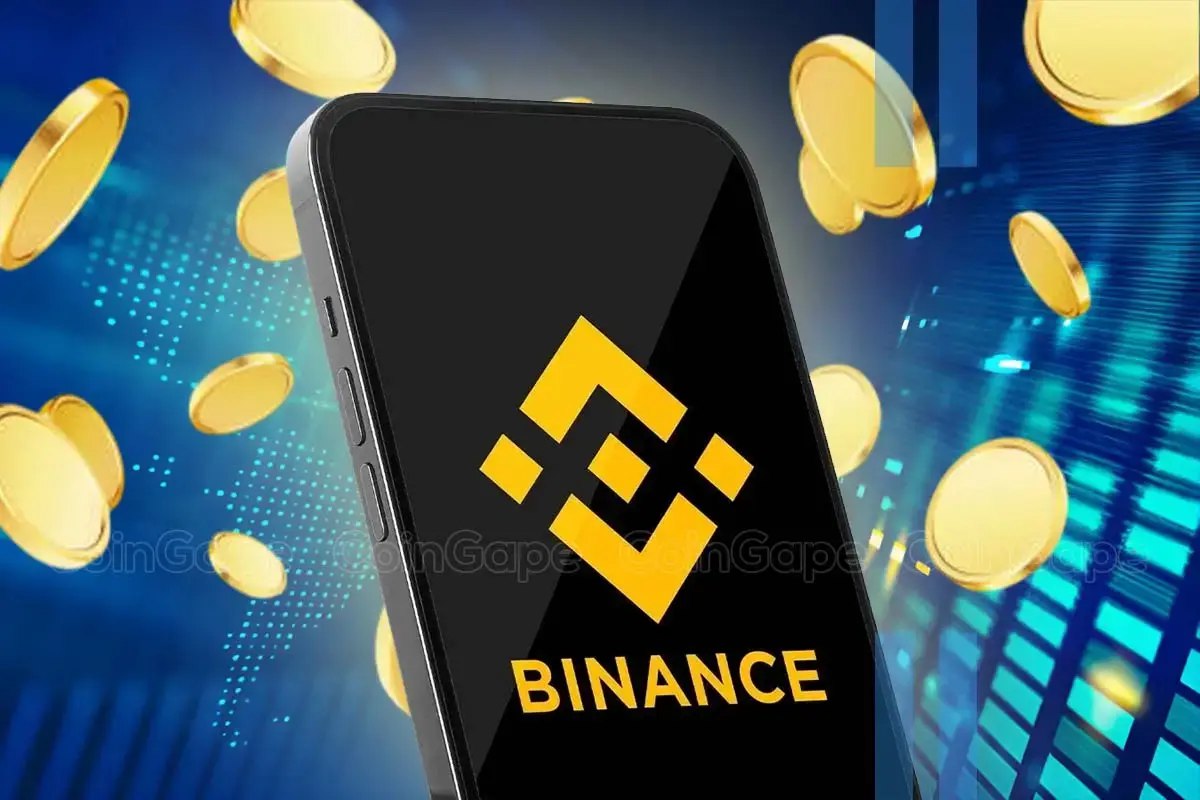
Crypto analytics platform CryptoQuant has conducted a deep dive research into Binance and other centralized exchanges to uncover how susceptible they are to liquidity risks. With the crypto ecosystem trading at a very high premium, exchanges require high liquidity to meet growing demands. Of its findings, CryptoQuant singles out Binance and OKX as platforms to watch out for.
What Makes Binance Stand Out from Centralized Exchanges?
According to CryptoQuant, it analyzed the leverage levels of top centralized exchanges. It conducted this exercise to evaluate their liquidity, default risk and how crypto reserves backs trading activity. The analysis also employs leverage ratio calculation to estimate trader’s exposures.
Based on this, the analytics firm singled out Binance as an exchange with robust reserves. The trading platform maintains this reserve despite the significant growth in open interest this year. This is signficant, considering how Binance Futures list new tokens to fuel this expansion including Solana’s Fartcoin.
“Its reserves in Bitcoin, Ethereum, and USDT comfortably exceed its open interest. Binance also reported the lowest and most stable leverage ratio among major exchanges, with a ratio of 12.8 in December 2023, rising slightly to 13.5 in December 2024,” the CryptoQaunt report reads.
As pointed out, this stability and the 2.6x expansion in Bitcoin open interest on the platform from $4.45 billion to $11.64 billion implies that the exchange can handle unexpected liquidations.
Centralized Exchange Leverage Risk on the Midst of the Upcoming Bull Run
We assess the leverage levels of various crypto exchanges to evaluate their liquidity, default risk, and the extent to which their perpetual futures trading activity is backed by their crypto reserves.
Our… pic.twitter.com/NAadJSAlVT
— CryptoQuant.com (@cryptoquant_com) December 21, 2024
As the report hinted, smaller exchanges like OKX also maintain low leverage ratios.
Centralized Exchanges and Avoiding the FTX Saga
In addition to the Binance spotlight, CryptoQuant also mentioned Gate io, Bybit, and Deribit. However, the report noted that these trading platforms have the highest leverage ratios in the market pegged at 106, 86, and 32, respectively. Notably, this figures show open interests for Bitcoin and Ethereum is higher than the existing reserves available on these centralized exchanges.
The analysis concluded by flagging the impact of high leverage trading, one of the major causes of the FTX Derivatives Exchange collapse. This report serves as an eye opener that can help traders manage risk per platforms they trade on.
Meanwhile, FTX is at the tail end of its bankruptcy proceedings. As Coingape reported earlier, FTX has set January 3 as the date to commence creditor repayment.
Godfrey Benjamin
Benjamin Godfrey is a blockchain enthusiast and journalists who relish writing about the real life applications of blockchain technology and innovations to drive general acceptance and worldwide integration of the emerging technology. His desires to educate people about cryptocurrencies inspires his contributions to renowned blockchain based media and sites. Benjamin Godfrey is a lover of sports and agriculture.
Disclaimer: The presented content may include the personal opinion of the author and is subject to market condition. Do your market research before investing in cryptocurrencies. The author or the publication does not hold any responsibility for your personal financial loss.
Source link

Perp-Focused HyperLiquid Experiences Record $60M in USDC Net Outflows

Experts say these 3 altcoins will rally 3,000% soon, and XRP isn’t one of them

Robert Kiyosaki Hints At Economic Depression Ahead, What It Means For BTC?

BNB Steadies Above Support: Will Bullish Momentum Return?

Metaplanet makes largest Bitcoin bet, acquires nearly 620 BTC

Tron’s Justin Sun Offloads 50% ETH Holdings, Ethereum Price Crash Imminent?

Investors bet on this $0.0013 token destined to leave Cardano and Shiba Inu behind

End of Altcoin Season? Glassnode Co-Founders Warn Alts in Danger of Lagging Behind After Last Week’s Correction

Can Pi Network Price Triple Before 2024 Ends?

XRP’s $5, $10 goals are trending, but this altcoin with 7,400% potential takes the spotlight

CryptoQuant Hails Binance Reserve Amid High Leverage Trading

Trump Picks Bo Hines to Lead Presidential Crypto Council

The introduction of Hydra could see Cardano surpass Ethereum with 100,000 TPS

Top 4 Altcoins to Hold Before 2025 Alt Season

DeFi Protocol Usual’s Surge Catapults Hashnote’s Tokenized Treasury Over BlackRock’s BUIDL
182267361726451435

Why Did Trump Change His Mind on Bitcoin?

Top Crypto News Headlines of The Week

New U.S. president must bring clarity to crypto regulation, analyst says

Will XRP Price Defend $0.5 Support If SEC Decides to Appeal?

Bitcoin Open-Source Development Takes The Stage In Nashville

Ethereum, Solana touch key levels as Bitcoin spikes

Bitcoin 20% Surge In 3 Weeks Teases Record-Breaking Potential

Ethereum Crash A Buying Opportunity? This Whale Thinks So

Shiba Inu Price Slips 4% as 3500% Burn Rate Surge Fails to Halt Correction

Washington financial watchdog warns of scam involving fake crypto ‘professors’

‘Hamster Kombat’ Airdrop Delayed as Pre-Market Trading for Telegram Game Expands

Citigroup Executive Steps Down To Explore Crypto
Mostbet Güvenilir Mi – Casino Bonus 2024

NoOnes Bitcoin Philosophy: Everyone Eats
Trending

 3 months ago
3 months ago182267361726451435

 Donald Trump5 months ago
Donald Trump5 months agoWhy Did Trump Change His Mind on Bitcoin?

 24/7 Cryptocurrency News4 months ago
24/7 Cryptocurrency News4 months agoTop Crypto News Headlines of The Week

 News4 months ago
News4 months agoNew U.S. president must bring clarity to crypto regulation, analyst says

 Price analysis4 months ago
Price analysis4 months agoWill XRP Price Defend $0.5 Support If SEC Decides to Appeal?

 Opinion5 months ago
Opinion5 months agoBitcoin Open-Source Development Takes The Stage In Nashville

 Bitcoin5 months ago
Bitcoin5 months agoEthereum, Solana touch key levels as Bitcoin spikes

 Bitcoin5 months ago
Bitcoin5 months agoBitcoin 20% Surge In 3 Weeks Teases Record-Breaking Potential



✓ Share: